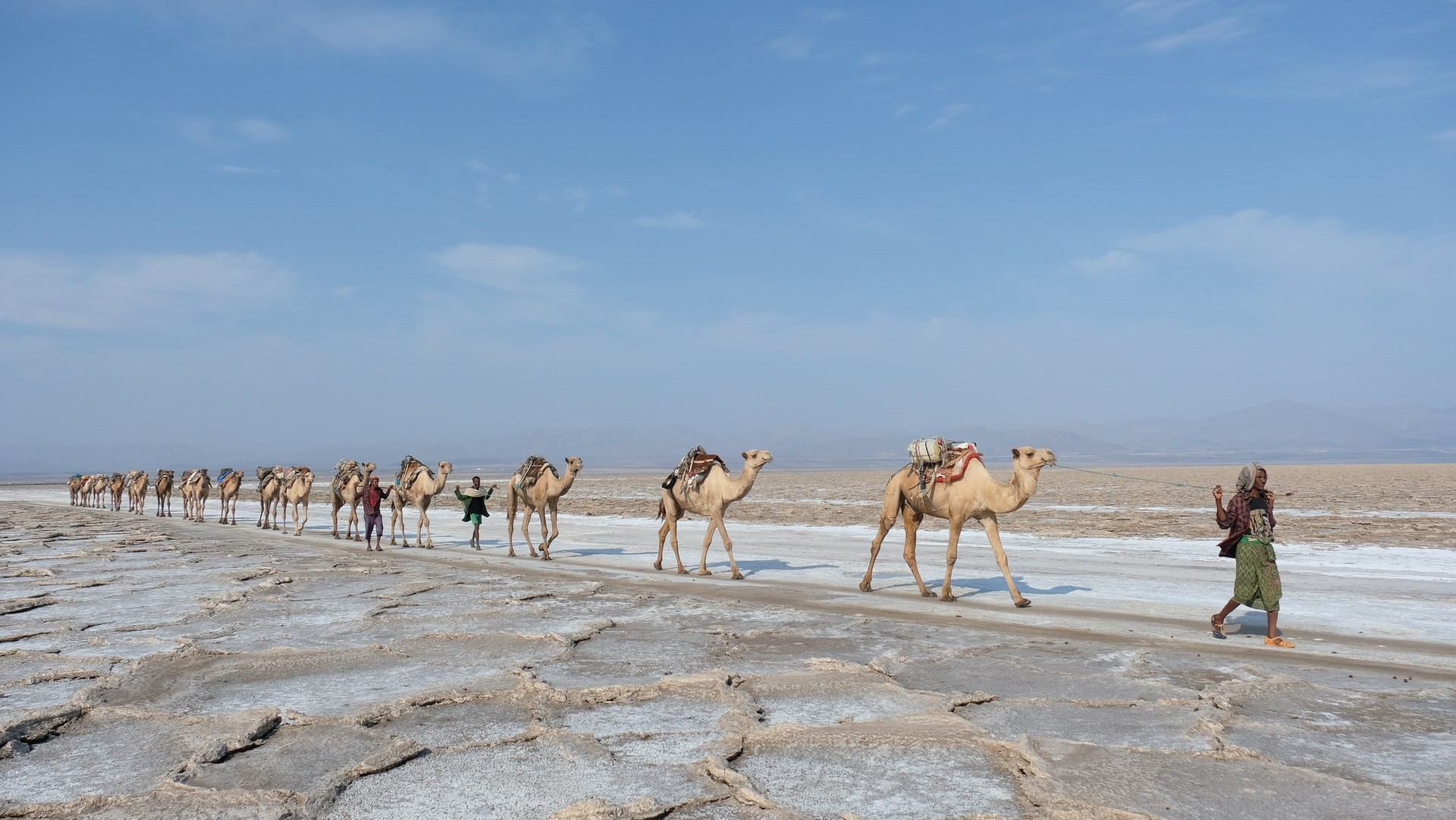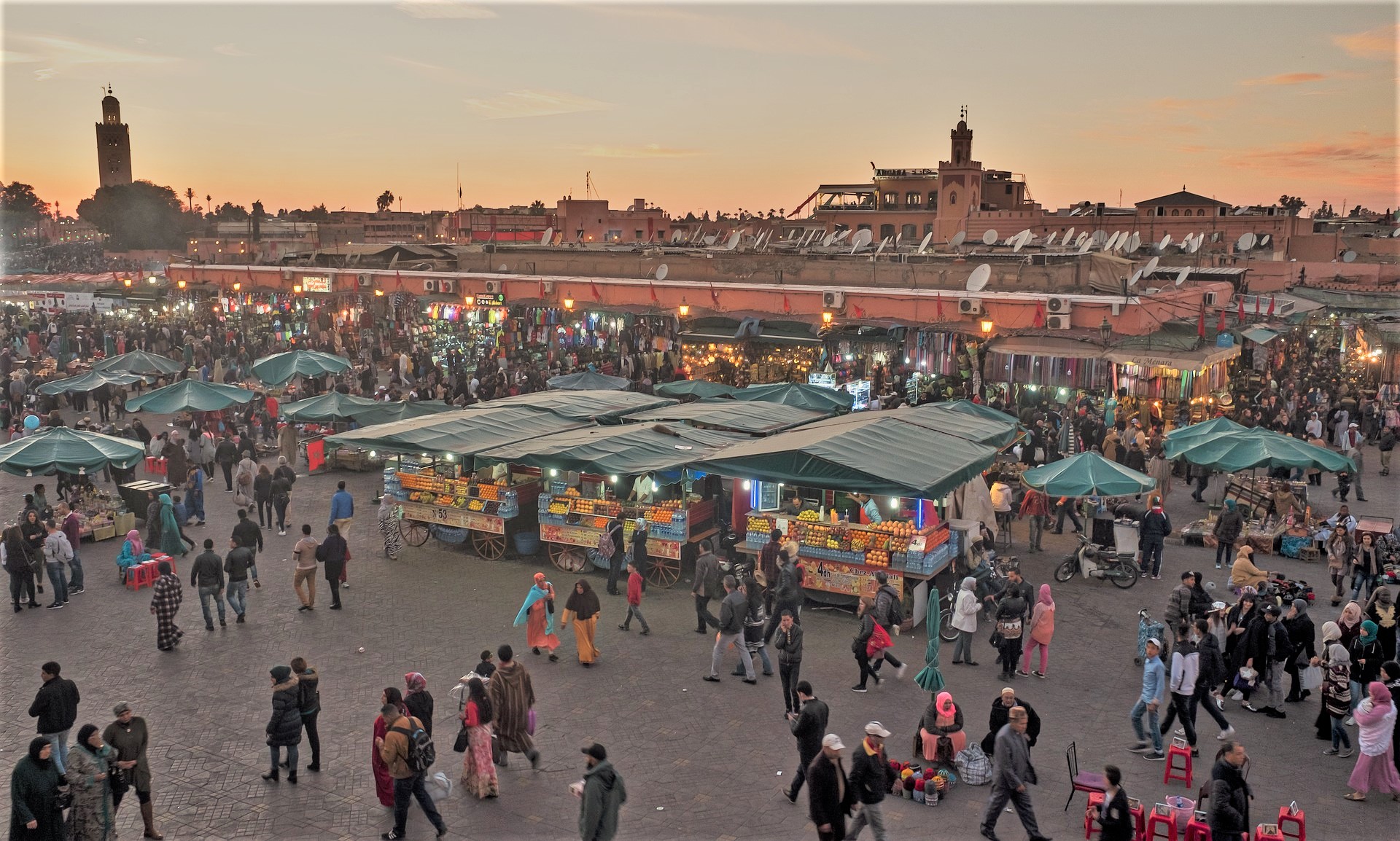Project flexibility and dynamic delivery needed in countries with fragile situations - IOE
Rome, 18 November 2021 – Cookie-cutter, generalized approaches to programme design are unlikely to meet the developmental challenges of countries with fragile situations. The ability to continuously adapt interventions to evolving needs is critical for success. This was among the key messages that emerged from the learning event on the 2021 Annual Report on Results and Impact (ARRI) of IFAD operations, which took place on 11 November 2021.
“In response to the challenges faced by countries with fragile situations, we need clear situational and institutional analysis, dynamic planning, flexibility and dynamic delivery on the ground. We need credible partners whom we trust; we need budgets that are adapted to addressing the situations of fragility; and, of course, we need to empower local communities”, explained Dina Saleh, Regional Director of IFAD’s Near East, North Africa and Europe Division.
Organized by the Independent Office of Evaluation (IOE) of IFAD, the webinar brought together a wealth of participants, ranging from practitioners of international institutions, including United Nations agencies, programmes and funds, to distinguished members of IFAD’s Executive Board.
“In terms of a long-term project performance trend, the ARRI notes steady improvement in two criteria, environment and natural resource management, and climate change adaptation. On the other hand, there have been signs of declining trends for the performance of the main partners, the government and IFAD, which the ARRI will continue to monitor in the forthcoming years”, stated Fabrizio Felloni, IOE Deputy Director, setting the stage for discussion.
The performance of IFAD-funded projects continues to be solid, with the majority of project performance ratings moderately satisfactory or above for all evaluation criteria. Areas of improvement in the recent periods include adaptation to climate change, efficiency, sustainability of benefits, innovation and scaling up. On the downside, efficiency remained relatively low. The efficiency criterion, which focuses on how resources are converted into results, suffers from long delays in recipient government review and ratification of agreements, and slow pace of implementation and disbursement, mostly due to weaknesses and delays in procurement processes.
Targeting vulnerable groups remains a hallmark of IFAD’s development strategy. By investing in basic infrastructure and grassroots level institutions, IFAD-funded interventions have succeeded in reaching marginalized populations, women and young people in remote rural areas and fragile contexts.
“Support to inclusive natural resource governance and management comes out as a strength of IFAD in the 2021 ARRI. This is an example of addressing a driver of fragility, which is natural resource-related conflict. Another example of targeting of marginalized groups was found in Cote d’Ivoire, where the project explicitly provided support to youth of ex-combatant groups,” highlighted Fumiko Nakai, Senior Evaluation Officer and lead author of the ARRI 2021 report.
The virtual webinar also featured a panel of technical experts who discussed ‘how to enhance IFAD’s support, engagement and development results in fragile situations’ – a very timely topic, given that two thirds of people in extreme poverty could live in fragile and conflict-affected situations by 2030, according to recent estimates. Expert panellists included Dina Saleh, Regional Director of IFAD’s Near East, North Africa and Europe Division; Norman Messer, IFAD Country Director for Chad and Mali; and Clément Banse, Chief Evaluation Officer of the Independent Development Evaluation of the African Development Bank Group.
The complex and multi-faceted nature of the challenges that countries with fragile context face gives birth to a variety intertwined challenges, as Ms Saleh noted in describing the obstacles of designing and implementing development and agriculture-related interventions with a conflict lens.
“A first challenge is that fragility is a multi-faceted dimension. A second are the institutional frameworks, with a high turnover of public decision makers and weak policy making settings. A third is the dichotomy between customary and statuary laws. A fourth is data scarcity and information flows. You are often grasping to get the data. A fifth is inadequate resources. A sixth is collaboration among partners. We all have institutional mandates, different interests on the ground, and are then confronted with the fine line between humanitarian and development interventions.”
In response to these challenges, IFAD looks at building blocks and conditions for successful intervention in fragile contexts. Mr Messer presented some of these, and discussed the importance of involving the entire rural community from the out-set to mitigate conflict and address fragility.
“There are no cookie-cutter solutions and we cannot generalize, as the situations in countries in fragile contexts are quite different. With that in mind, one of the building blocks that we need to be aware of is the level of decentralization that the country has because we need to work at the decentralized level. Another condition would be that the government accepts multi-stakeholder and civil society engagement. Also, service providers must already exist on the ground, such as local NGOs that we can work with – we can’t dream them up.”
“The effectiveness of support from all development partners to countries in fragile contexts depends on the ability to continuously adapt interventions to the evolving needs. In the face of limited resources, development partners have to be selective in directing support to areas in which they have comparative advantage to maximise development impact”, Mr Banse remarked, also referring to the evaluation on the African Development Bank Group’s strategy for addressing fragility and building resilience.
Building on the findings of the ARRI, and capitalizing on its experience, IFAD will need solid strategies informed by dedicated conflict and fragility analysis to address both the drivers and consequences of fragility.
“IFAD management is reviewing its engagement in fragile situations to improve our performance in building resilience and engaging better in conflict-affected situations. We are developing special initiatives, for example enhanced engagement in the Sahel and in the horn of Africa. We have a dedicated strategy for small island developing States, which will be going to the Board in April. All of these are fragile contexts. The lessons from these fragile situations are highlighted very well in the ARRI. Business as usual is not going to be sufficient in these contexts”, concluded Nigel Brett, Director of IFAD’s Operational Policy and Results division, speaking on behalf of Donal Brown, AVP for IFAD’s Programme Management Department.
For further information, please contact Alexander Voccia at [email protected]
Follow us on:




